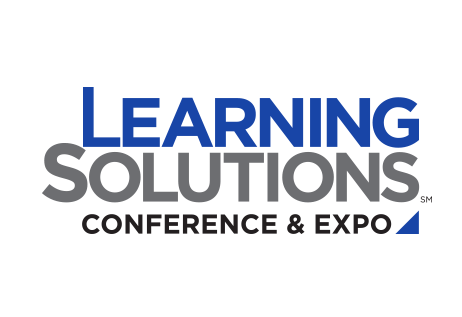Learning Solutions Concurrent Sessions
The Learning Solutions Conference & Expo offers over 100 concurrent sessions covering eLearning best practices, how-tos, case studies, and emerging trends. These sessions will help you develop new skills and knowledge, which will help you build more engaging and effective learning experiences.
Specialized Focuses
In addition to the great tracks at Learning Solutions Conference & Expo, there are a number of specialized sessions curated to help you put your skills into practice immediately.

The AlignED series of sessions focuses on what higher ed and corporate learning professionals can learn from one another. These sessions help bridge the gaps between academic and corporate education.

B.Y.O.L.® (Bring Your Own Laptop®) workshops ensure that you receive in-depth, hands-on training and enable you to follow along with the instructor step-by-step.
Filter By:
Sessions in Ecosystem - Processes Track
ECO113 It Wasn’t Broke, but We Fixed It: Rethinking a Corporate University
Concurrent Session
As the Spectrum Health University adapted to an ever-evolving health care landscape, the programs and offerings from the organization needed to change as well. Through an analysis of brand, audience and offerings, and a desire to more closely align with the organization’s new strategy, a sizable challenge was undertaken to reimagine the corporate university with the use of social collaborative platforms and the deployment of micro-learning resources.
Read MoreECO313 What Netflix and Facebook Can Teach Us About Corporate Training
Concurrent Session
Netflix knows what you want to watch because its algorithm interprets audience data and weighs those insights against the content in its library. With each like and click, Facebook continues to build an empire around the idea that social media can be as personal as your name. Every experience is catered to the individual, except the way employees are trained. Calculating the ROI for employee development can be costly and difficult, yet with the 21st century economy becoming more dependent on knowledge workers, on-demand skill development is critical to success.
Read MoreJetBlue University (JBU) has recently built a hotel for its employees going through training, and is in the process of implementing a new learning management system with a social learning component. Several of JBU’s workgroups are adopting iPads for use in their workflows. With all of these new opportunities for use in training, JBU needed to look at its current learning landscape, and determine if the current strategy supports where it wanted to go in the future as it relates to training and employee performance.
Read MoreBy now, learning professionals are likely convinced that curation should be one of their skill sets, and many articles have offered them advice on essential tools and the qualities of good curation. But the articles assume that everyone knows how to search for material on the Internet and how to find and vet a solid set of learning resources to recommend. It’s usually not as easy as typing keywords into the search box and picking a couple of items off the first few pages of results.
Read MoreIn recent years, learning has moved closer to the workplace. Classrooms have moved out of corporate learning centers and into training rooms co-located with offices. Online learning is delivered directly to the desktop more than ever before. The next challenge is to move learning directly into the workflow. To do this, there needs to be a move beyond course delivery and into a broader, more comprehensive, and strategic approach that focuses not just on learning, but on performance and productivity.
Read MoreMany learning and development (L&D) organizations today are well positioned to enable executives within their enterprise to drive change—rapidly capitalizing on emerging changes in technology, process, and skill. However, not all executives outside of L&D view it as an essential, foundational partner. In fact, according to a recent survey of senior learning professionals conducted by the Human Capital Institute, a great challenge facing CLOs today is gaining executive buy-in and overcoming the view of L&D as a cost center.
Read MoreECO914 Learning: The Foundation of a Strong Workplace Culture
Concurrent Session
Every workplace has a culture. However, the real culture within an organization often doesn’t resemble the mission statement and core values posted in the hallways and on the company’s website. And, if eLearning or knowledge is included in the company’s values, this tends to refer to limited, formal training events, or tuition reimbursement. Learning professionals must understand the foundational impact their efforts can have on the organization and its culture—everything from the way work is done to how employees relate to customers.
Read MoreECO915 A Learning and Performance Ecosystem Project Showcase: Problem, Process, Solution
Concurrent Session
A multinational industrial manufacturing company recognized that it had excessively high inventory costs. The executive vice president of quality systems engaged a L&D organization to see whether they could help. L&D conducted a thorough needs analysis, harvested knowledge from experts, and developed a solution using five ecosystem components: performance support, knowledge management, access to experts, social networking and collaboration, and structured learning.
Read MoreTraditional approaches to learning and development are no longer responsive enough to continuously build and refresh the capabilities and skills that organizations and employees need. So workers and business leaders are increasingly looking beyond what their L&D departments have to offer. And those learners are choosing to learn and develop in different ways from a much more diverse range of sources. Meanwhile, most L&D infrastructure is still geared for the same old thing: creating, managing, and delivering formal training.
Read MoreOrganizational learning’s transformation is being driven by two forces: technology and the need for business agility. In the industrial era of the last century, training was the default for organizations, as information was not easily accessible and many work tasks were repeatable. Today the opposite is true; information is plentiful and easily accessed and routine work is being automated, creating a greater need for creativity and problem-solving skills. With employees being increasingly comfortable with job movement, social connection must be the new centerpiece.
Read More


























